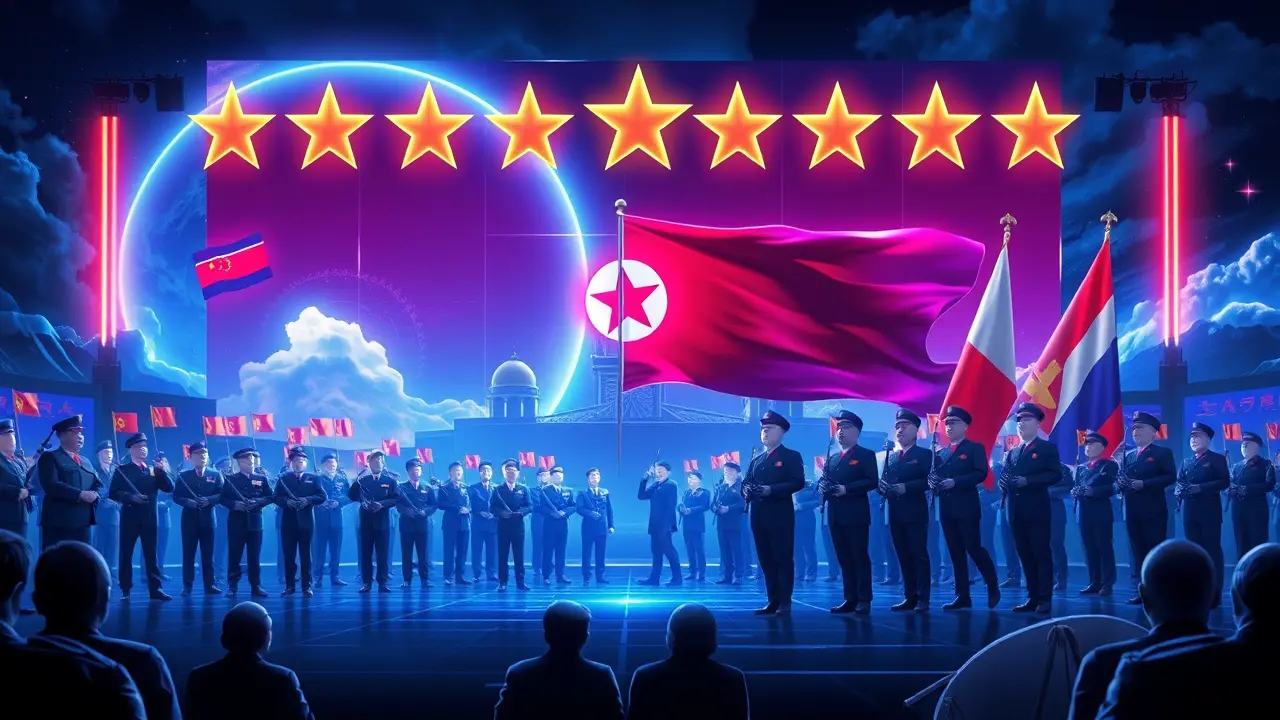Foreign Dignitaries Attend North Korea's Party Anniversary.
In a display of geopolitical solidarity that would not look out of place in a chapter on Cold War alliances, the Democratic People’s Republic of Korea is set to host foreign dignitaries from a tellingly selective roster of nations—China, Russia, Vietnam, and Laos—for its pivotal Party anniversary celebrations this Friday. This gathering, far from a mere ceremonial formality, represents a critical strategic maneuver on the global chessboard, echoing the bloc politics of a bygone era yet firmly rooted in the stark realities of contemporary power struggles.The presence of officials from Beijing and Moscow, in particular, signals a deepening and increasingly overt entente against the prevailing Western-led international order, a partnership forged in the fires of shared opposition to sanctions and a mutual desire to dismantle American hegemony. One can draw a direct historical parallel to the Sino-Soviet pact of the 1950s, though today’s coordination is less about ideological purity and more about a pragmatic, transactional alignment against a common adversary.Analysts observing the troop parades and meticulously staged displays of national unity will be looking for any subtle shifts in rhetoric or symbolism that might indicate Pyongyang’s next provocation, be it a seventh nuclear test or another long-range missile launch, actions that these attending nations have historically shielded from consequential reprisal at the United Nations Security Council. The inclusion of Vietnam and Laos, meanwhile, adds a layer of nuanced complexity, suggesting Pyongyang’s attempt to reinforce its standing within a broader, albeit looser, Asian socialist continuum, even as those nations carefully balance their own relationships with the West.The consequences of this consolidated front are profound, effectively creating a diplomatic safe harbor for Kim Jong-un’s regime to continue its weapons development unabated, thereby accelerating a new, dangerous phase of nuclear proliferation and regional instability. As Churchill might have observed while watching the storm clouds gather, this is not the end of the crisis, nor is it the beginning of the end, but it is, perhaps, the end of the beginning, marking a definitive consolidation of a new axis of authoritarian power that is methodically challenging the foundations of the post-World War II international system.
CY
CynicalSam10 hours ago
so this is just how it's gonna be now huh feels like we're sliding back in time and not in a good way
0
CU
CultureVulture2312 hours ago
this feels like the start of a spy thriller nobody asked for tbh like a weird bond villain team up smh
0
CU
CuriousObserver13 hours ago
so it's basically the same old alliances just with new flags smh, feels like we're just watching the same movie again
0
© 2025 Outpoll Service LTD. All rights reserved.
